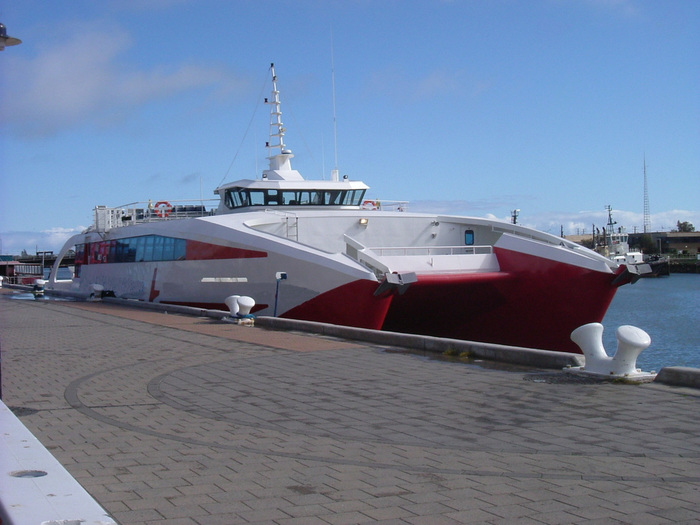RoRo vessels are ships that are used to carry wheeled cargo like automobiles, trucks, trains etc. An acronym for Roll on and Roll off, the RoRo vehicles are named thus as the cargos here are loaded and unloaded by way of rolling on and rolling off through built in ramps.
Kinds of RoRO vessels generally found are day and night ferries, pure trailer vessels and trailer ferries with accommodation for drivers. For the RoRo vessels that cross the oceans exclusively carrying cars and trucks are known as Pure Car Carriers (PCC) and Pure Truck & Car Carriers (PCTC) respectively.
Unlike other cargos, the cargos of RoRo vessels are measured in lanes in metres (LM). With a slight variation to RoRo vessels Ropax vessels are made. Here passenger accommodation is added.
Due to its easier loading and unloading process and better integration capacity with other transport development the RoRO vehicles are normally speedier.
The RoRo industry has shown balanced responses to market demands inspite of the demands of quality service at right frequency and degree of capacity. The global RoRO market has become more fragmented with more number of small capacity of exporters coming in.
From various worldwide surveys done on the demand of RoRo shipping services, the decision making factors can be categorized as the following:
Quantitative factors
- related to route ( frequency, transit time, capacity, number of calls)
- factors related to costs (freight rates, insurance, etc.)
- service factors (reliability and delays, risk of damages and losses, emergency handling capabilities, documents and ability of tracing etc.).
Qualitative factors
- tradition
- flexibility
- measure of responsiveness to flaws
- information available during transport
- cooperation and personal contact
- ease of administration
The specific choice factors that work in the shipping services, as per data gathered from large number of shipping services companies are, long terms commitment in the specific market, willingness of carriers for long-term contract, technical characteristics of the vessel, reputation regarding damage to cargo, service frequency, agreeability to negotiate flexible contracts for variable circumstances, freight rate, reputation of punctuality, transit time, marketing activities and problem responsiveness.
As port plays a big role in shipping services the following attributes of ports control demand of services: proximity of port to the point of production or delivery, costs of port, reputation for strike record, cargo facilities, traditional links with the shipping line and its promotional activities, speed of port operations, port accessibility.
Their exists a dilemma in prioritizing the port or the vessel when choosing a RoRo vessel service. Some believe that the port is the chief deciding factor and some think it is the carrier. Apart from that, individual perception of shipping managers and buyers has a big role in final decision making of buying a service. It has been generally noted that shipping managers have a conservative approach and only take calculated risk and that too occasionally. In selection of carriers and ports they tend to go for personal contacts and perception formed according to their experience in the sector and abilities. Actual data of performance generally has a secondary influence in the decision making.
As RoRo vessels market comprise of a big chunk of the shipping business, the decision making process here is based more on individual perception and conservative risk averse behaviour pattern than on actual findings.


